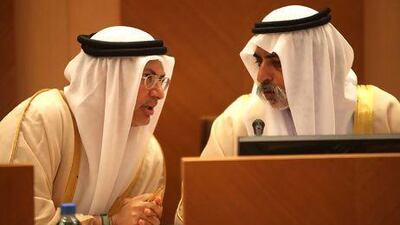ABU DHABI // The Federal National Council's interaction with the public increased as members' roles became better known in the community.
While many members relied heavily on social media in the first year, in the second year many took to the streets to reach all segments of society.
In the past year, a handful of lectures were held by Dubai members in an attempt to reach the public, while other members held visits and attended majlis meetings.
"If you look at the questions presented in the council, they are varied and cover all aspects of life, like faith healing," Dr Sheikha Al Erri (UAQ) said. "You notice throughout that our communication is on a very large scale."
She said that as a member of the community, she did not find any of the questions presented by the public to be "peculiar".
Although male members had an advantage, being able to freely attend majlis meetings, Dr Al Erri said she still worked to reach the "head of the majlis" to ensure ideas were discussed and feedback was given to her on all issues discussed and those that would be discussed in the chambers.
"We are not just on social networks, you can find us at meetings, majlises and other places," she said. "When we arrived in the council none of us changed our numbers or accounts because we wanted as many people [as possible] to reach us."
Now, as members' profiles become better established, the public has been more willing to approach them.
"It makes us very happy when someone talks to us," she said. "You only approach someone you trust. Them approaching us means they trust us in our roles."
Ali Al Nuaimi (Ajman) said his tactic was first to hold regular meetings, and then to refer to stories reported in media and social networks. Government employees were also another source for him. "Like my question with women working in the Government sector, they had approached me," he said.
"Also about fishermen, they told me that they were not getting Government support."
After being presented with ideas by the public, he said he would run his own investigations in the matter.
This year the council also set up its own official Twitter and Facebook pages, which featured regular updates on meetings and details of public debates.
After an award ceremony for more than 130 agencies found to have helped the council in the past year, Dr Mohammed Al Mazroui, the council's secretary general, said this year the FNC had been able to reach new ground.
"We noticed cooperation was not only with the Government, but also with local entities, like universities and other authorities," he said. "The council is now requested on a larger scale."

